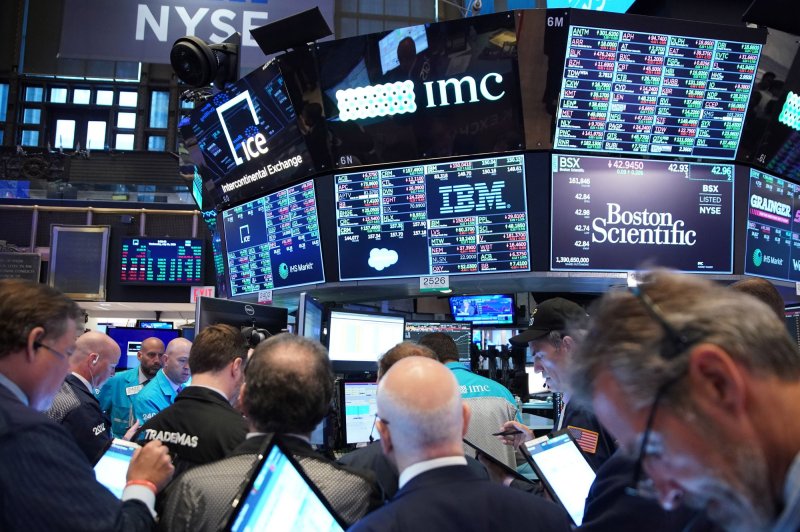Traders work on the the floor of the New York Stock Exchange on July 31 on Wall Street in New York City. Photo by John Angelillo/UPI |
License Photo
Aug. 14 (UPI) -- All three major U.S. stock indexes fell Wednesday upon rising concerns of an approaching recession, signaled in part by the benchmark 30-year Treasury bond falling to a record low.
The Dow Jones Industrial Average slid 800.49 points, or 3.05 percent, at the end of trading Wednesday, while the S&P 500 shed 2.93 percent and the Nasdaq Composite dropped 3.02 percent.
The market losses followed the sinking of the 30-year Treasury bond yield Wednesday to a new all-time low, below 2 percent for the first time in history. The previous low was 2.09 percent three years ago, after Britain voted to leave the European Union. The 10-year yield fell below 1.6 percent.
Analysts view both bonds as a key indicator in U.S. economic health, and some expressed concern Wednesday the losses might indicate a coming recession.
"It's a very unusual time period," analyst Arthur Bass of Webush Securities said.
President Donald Trump criticized the Federal Reserve on Twitter on Wednesday afternoon for what he said was raising the interest rate too often and too quickly. He called Fed Chairman Jerome Powell "clueless."
"We should be easily reaping big rewards and gains, but the fed is holding us back," Trump wrote.
News that the German economy shrank in the second quarter also might have influenced U.S. markets.
Analysts say similar inversions of the 10-year Treasury note and the 3-month Treasury bill have preceded every recession in modern U.S. history. The last time the yield-curve saw such a decline was late 2005, but the trailing recession didn't arrive for another two years.
Bank stocks also took a hit. After the markets closed Wednesday, Bank of America had fallen more than 4 percent, Citigroup 5.28 percent and JPMorgan 4.14 percent.
"The U.S. equity market is on borrowed time after the yield curve inverts," Bank of America strategist Stephen Suttmeier said.















